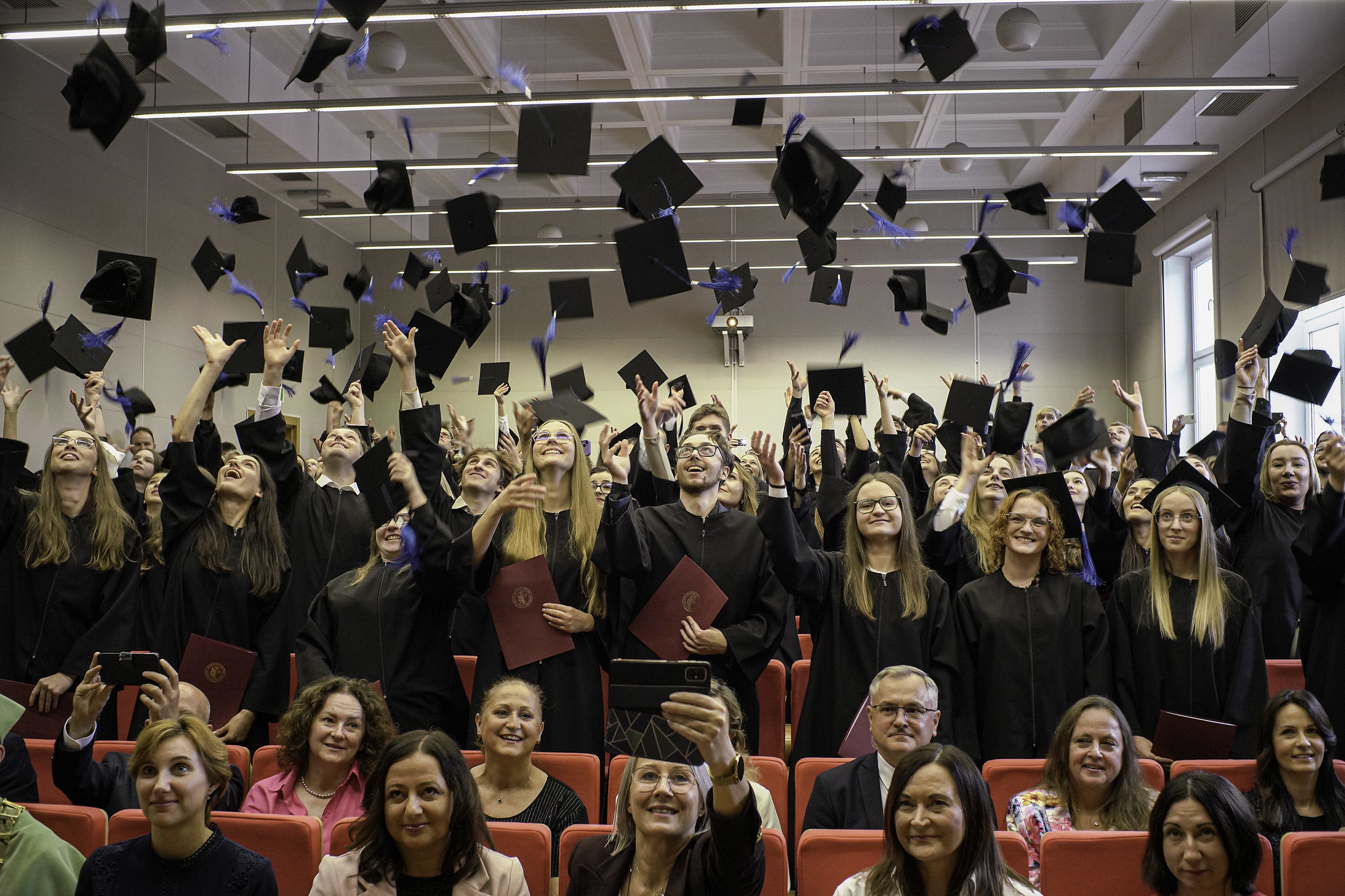
The Institute of Economic Sciences was established at the Higher School of Education in Opole in 1975. In 1992, two years before the establishment of the University of Opole, the Institute was transformed into the Faculty of Economics. The Faculty celebrated its anniversary on 10 October 2025, and a day later, this year’s graduates took part in the faculty’s graduation ceremony.
Prof. Rafał Matwiejczuk, economist and Vice-Rector for Development and Finance said: ‘What began 50 years ago has become a permanent feature of the academic panorama of Opole. The decision to launch the Economics of Production programme was a breakthrough for the then Higher School of Education.’
‘This shaped the development of the Higher School of Education, and then the University of Opole, of which the Faculty of Economics became part,’ said the vice-rector. ‘To this day, economics programmes are crucial for the development of the University of Opole. First and foremost, because they are closest to the broadly understood business environment.’
The main part of the anniversary celebrations took place in the Blue Hall of Collegium Maius. The programme included a panel entitled ‘Quo vadis, oeconomia!’ with the participation of: Prof. Romuald Jończy (University of Opole), Prof. Elżbieta Mączyńska (Polish Economic Society), Prof. Krzysztof Jajuga (Wrocław University of Economics) and Prof. Jacek Karwowski (Wrocław University of Economics). The panel was moderated by Prof. Bogusław Nierenberg.
The ceremony was also an opportunity for speeches, words of appreciation, and congratulations. Speakers included Prof. Jacek Lipok, Rector of the University of Opole, Prof. Marta Maciejasz, Director of the Institute of Economics and Finance, and Dr Bartosz Chorkowy, Dean of the Faculty of Economics. Participants also watched an anniversary film, enjoyed a performance by the UO Academic Choir, and after the event, they visited the University Hill and the UO Museum.
‘Economics programmes are undoubtedly very important for the University of Opole. When it comes to their significance and role at the university, it is a constant awareness of what is happening in its socio-economic environment,’ emphasised Prof. Jacek Lipok. ‘It is the research and training experts who are ready to provide meaningful, reliable and factually correct answers about how the economy works and how it can be supported. Therefore, the Faculty of Economics plays an important role in educating human resources for the needs of our region.’
‘Our employees conduct a wide variety of research that addresses the needs of the current economic situation. We conduct research, for example, in the digitisation of public services and the development of smart cities, as part of international projects,’ said Prof. Marta Maciejasz, Director of the Institute of Economics and Finance of the UO. ‘We also study housing policy and migration processes and we have established the Centre for Migration, Depopulation and Development Research at the UO, headed by Professor Romuald Jończy. In addition, we engage in broadly understood economic education.’
First economics programmes were launched in 1975, still within the walls of the Higher School of Education. At that time, a new Institute of Economic Sciences was established as part of the Faculty of Philology and History. In 1992, it was transformed into the Faculty of Economics, which two years later became part of the newly established University of Opole. Currently, four fields of study are available within its walls: economics, finance and accounting, logistics, and management. They are offered at the bachelor’s and master’s levels.
‘We are constantly adapting our curricula to the changing environment. We seek to ensure that our students gain more and more practical knowledge. We want them not only to be able to interpret phenomena, but also to create economic reality,’ emphasised Dr Bartosz Chorkowy, Dean of the Faculty of Economics. ‘At present, we are not experiencing a decline in interest in economics programmes, but we realise that demographics are inexorable and that at some point this decline will affect us.’
The day after the main part of the anniversary celebrations, this year’s graduates of the Faculty of Economics participated in the graduation ceremony, receiving congratulatory letters and posing for commemorative photographs. There was also time for words of gratitude, congratulations and good wishes. All this amidst supervisors, academic teachers, families and friends.